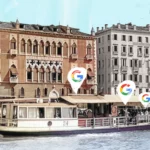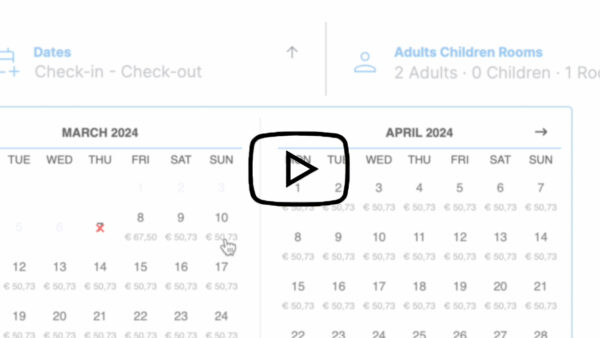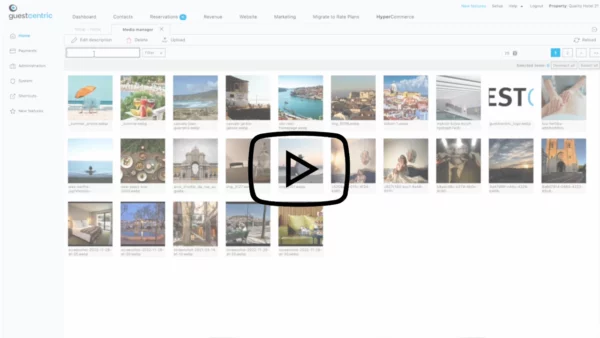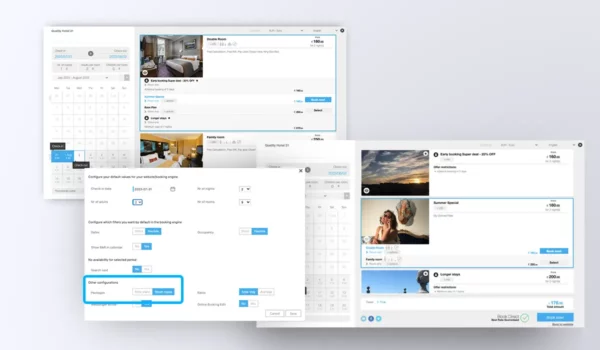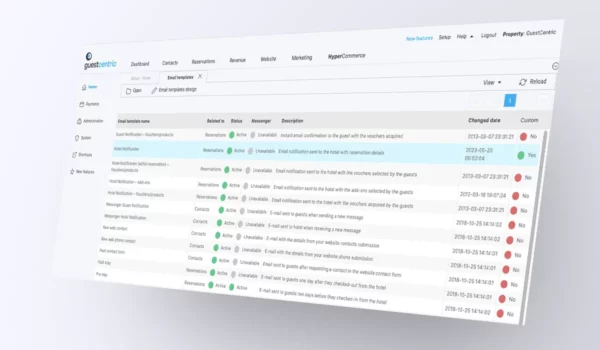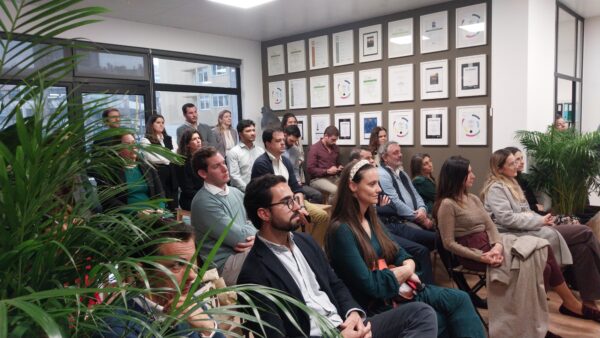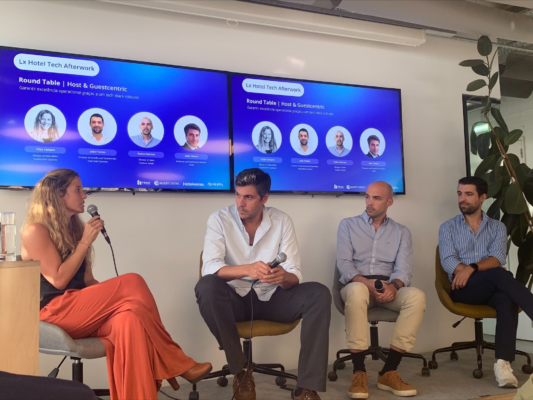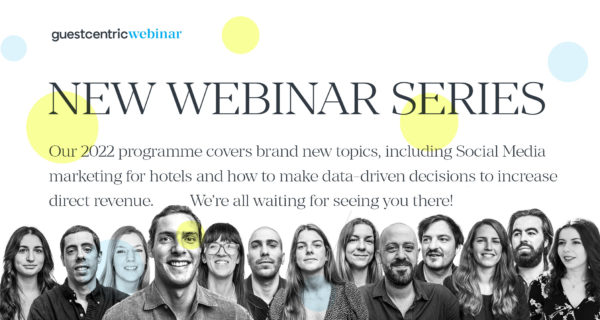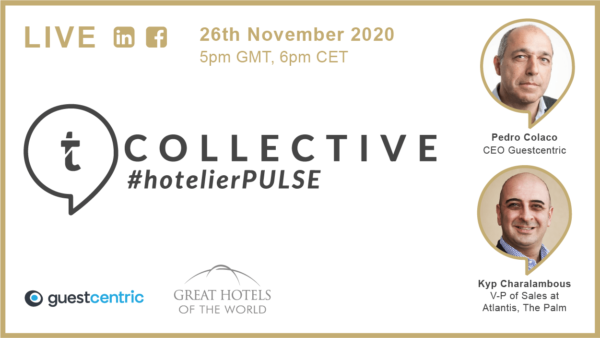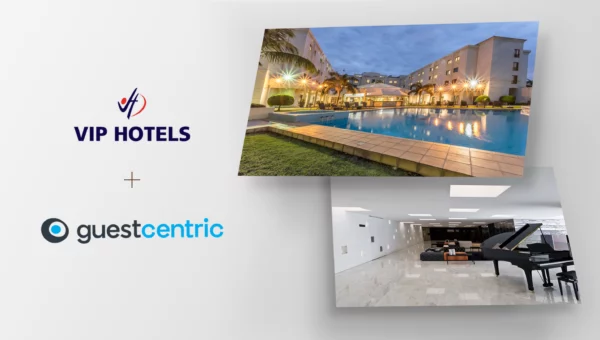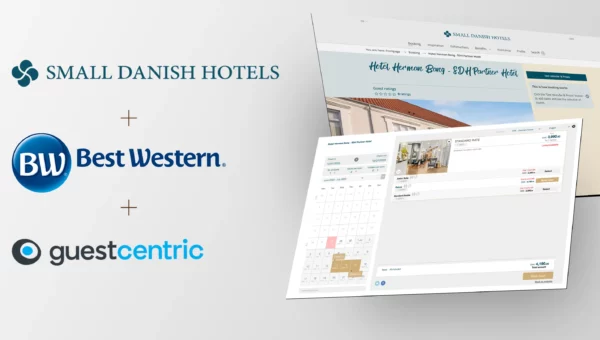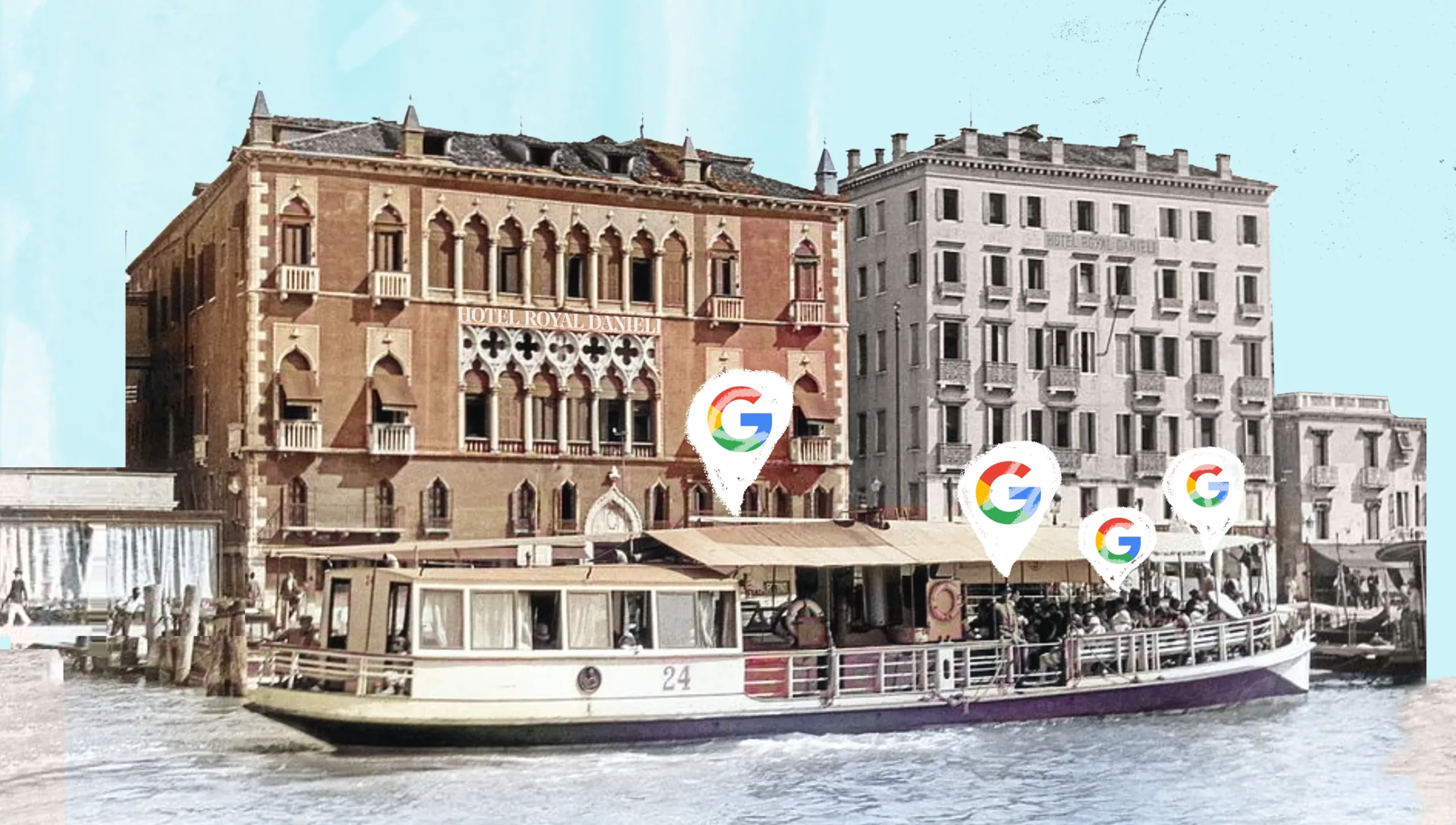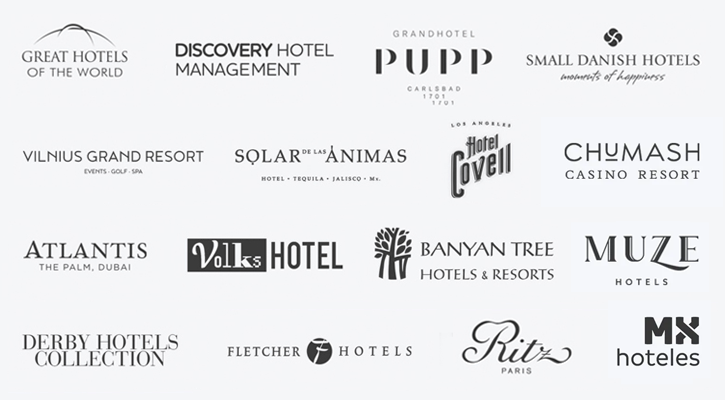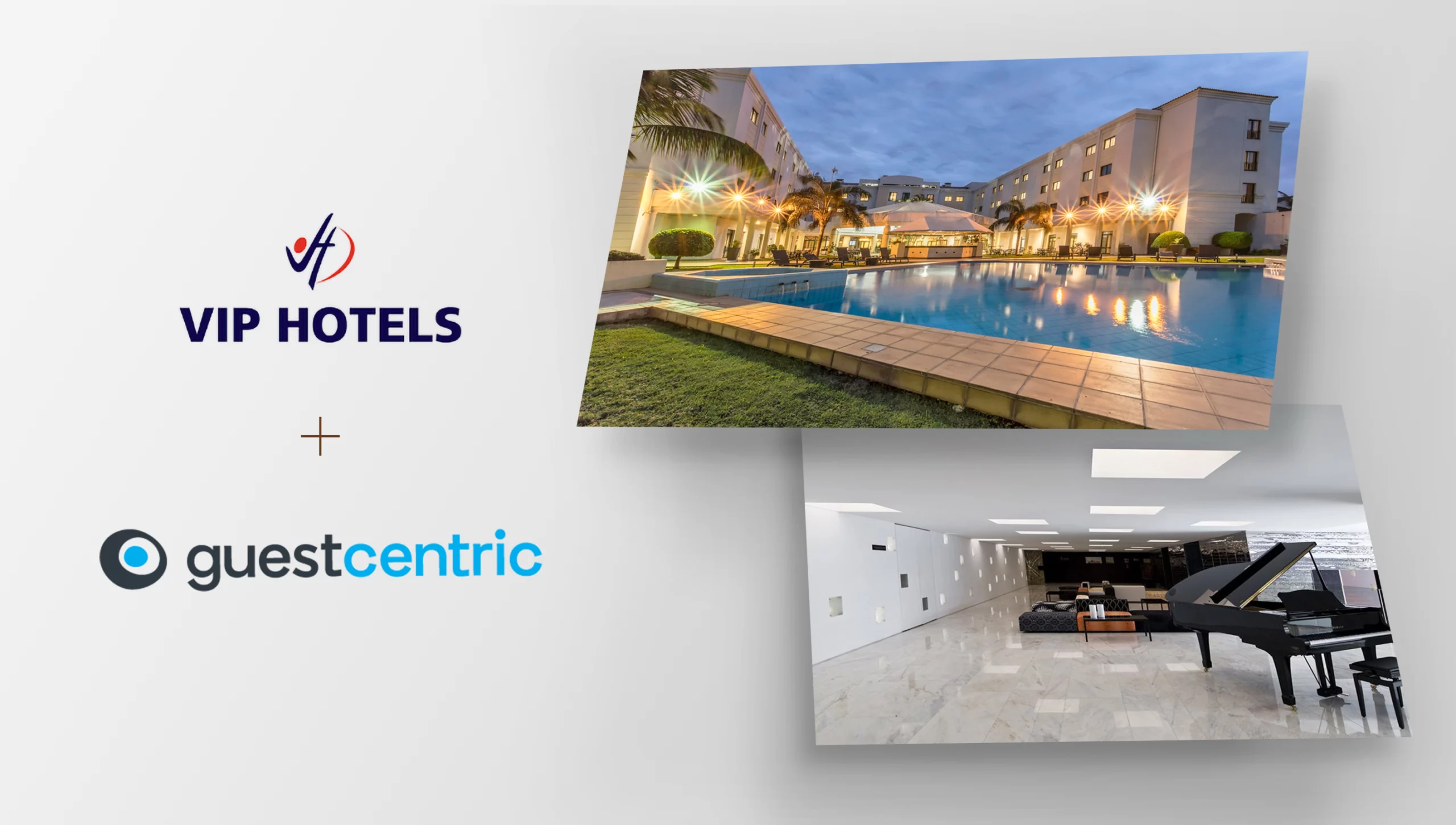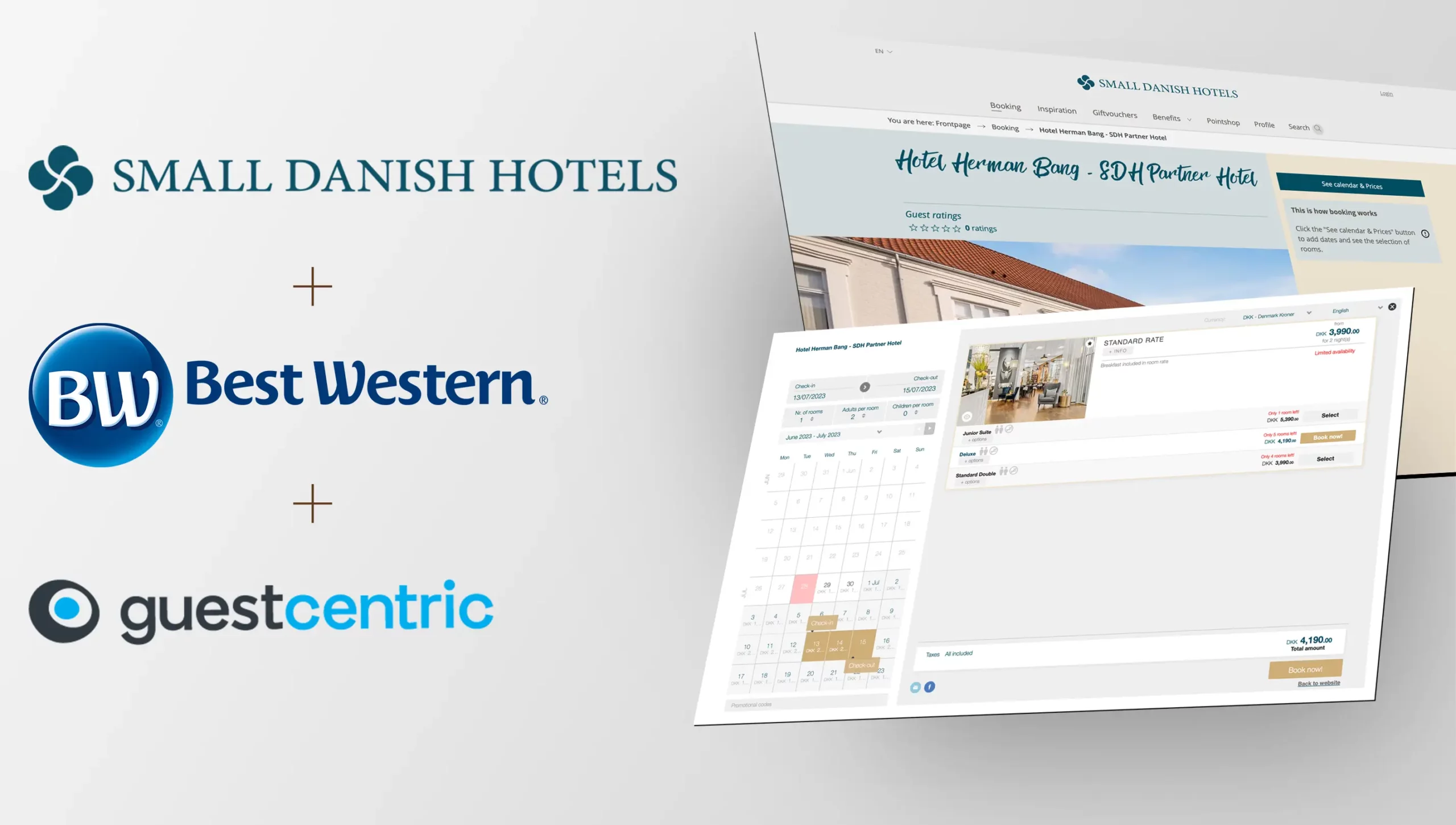How to Boost Hotel Direct Bookings with Google FBL
Reading Time: 6 minutesIn March 2021, Google launched Hotel Free Booking Links (FBL) as part of its metasearch product, in addition to Google Hotel Ads (GHA). Since then, thousands of hotels have listed their properties to increase brand visibility and boost direct reservations.
You may be wondering, what have been the results so far, and how can hotels optimize their presence on FBL to increase direct bookings? We investigate.
What is Google FBL and How does it Work for Hotels?
In 2021, Google added Free Booking Links (FBL) to its metasearch offer. When a hotel creates a listing and activates this feature, a free link to its website booking engine is displayed underneath paid ads. The key difference between Google Hotel Ads (GHA) and FBL is that hoteliers can list their property and rates for free.
When a potential guest searches for hotel prices and availability on Google and looks at the details of a specific hotel, Free Booking Links show up in the results. A key benefit of these links is they allow you to send online users directly to a page of your choosing. When travelers search for a hotel in Google and click on ‘check availability’, it takes them to a page listing all options to book the selected hotel. FBL lists all channels selling the hotel inventory, and among these channels, is the hotel website.
Many hotels work with a provider to connect to Google and set up their free booking links. Properties are automatically eligible to display free booking links by meeting the following requirements:
- The hotel is an existing Hotel Center partner
- The hotel has an existing Google My business (GMB) profile (note that your property type must be specified as ‘hotel’).
A GMB profile enables you to manage information about your business on Google’s search engine, and interact with potential or existing customers (via reviews). To find out more about setting up your profile, you can review this guide.
Any property that has available rates and a dedicated landing page in existing hotel campaigns are eligible to show. Hotel information and management details are confirmed through a Google Business Profile. Once this information is set up, you have the option to set up FBLs and/or run Google Hotel Ad (GHA) campaigns. GHA is a paid service Google Hotel Ads that offers a diverse range of bidding strategies, including cost-per-conversion, Target Return on Advertiser Spend – which is total revenue divided by total spend (for partners with 100+ hotels), and Enhanced Cost-Per-Click and Commission strategies.
If your hotel participates in the GHA Commission Program, you can opt for the cost per acquisition model, which means you only pay Google a commission (in our case 14%) at guest check-out and not per click. Running both FBL and GHAs gives hotels the opportunity to lower reservation costs on high demand days. We typically recommend that hotels keep these two Meta channels active, implementing a specific rate strategy for each one. For example, hotels can close rates for the paid ads and allocate inventory to the FBL on the higher occupancy dates. Meanwhile, paid ads are really important to increase the performance of the direct channel on low demand dates. and FBL is important to improve the market share of the direct channel.
If your hotel currently has a strong organic presence on Google, then opting for an FBL – only strategy may be more cost-effective for your hotel. Analyzing the performance of 133 hotels within our performance, we discovered that hotels with FBL only generated an average of €100 in bookings per room, while hotels with GHA and FBL had an average of €48 per room on FBL and €86 on Ads (€134 total). Hotels with FBL generate €100 in reservations, but pay zero in commission. Meanwhile those with FBL and GHA generate €134 in reservations and pay €12 in commission for the €34 extra in revenue. This equates to the equivalent of 35% commission on the extra.
Independently or through your provider, your hotel may also choose to work with World Independent Hotels Promotion (WIHP), a digital marketing agency that specializes in helping independent hotels and small hotel chains increase their online visibility, direct bookings, and revenue. In this case, you will pay a fee per month with all Google bookings included in the rates.
It’s important to note, however, that if you’re an experienced hotel with strong organic results on Google, then you probably won’t even need to list on Google Hotel Ads. But if you’re just starting out, you may want to consider giving it a try.
3 Advantages of Google FBL for Hotels
As we can see in the business results above, Google’s Hotel Free Booking Links program can give hotels the opportunity to increase visibility and direct bookings. Below are advantages to consider for your business:
1. A more Cost-Effective Model for Higher Visibility
Google’s FBL gives hotels another free source of traffic. Hotel booking engines are now showing up in a marketplace used to belong to paid advertisers such as Booking and Expedia. This is an opportunity for hotels to compete with the big sharks and drive more direct traffic. But of course, it’s critical to ensure that your listings are optimized for Google
OTAs typically charge up to 25% commission, and some of them even charge for extras such as breakfast or parking. If you decide to add a GHA campaign to FBL, rates on Google can be a much more cost-effective way for hotels to advertise. For instance, Google’s Pay-per-stay program offers hotels high visibility with just 14% commission at guest check-out.
2. Ability to display real time inventory and rates of the direct channel on Google
Google is the world’s largest search engine, and research by Web in Travel shows that 81% of travellers turn to Google as their primary source for travel inspiration. Displaying your inventory and rates on Google Hotel Free Booking Links will make you more visible to a wider audience. Customers will also be able to more easily compare your direct rates to other OTAs, so it’s important to ensure that your direct price comes up better on Google, so that consumers go straight to your website.
3. Increase Visibility, Brand Awareness, and Competitive Advantage
Google’s search engine, for now, offers a somewhat leveled playing field for hotels to compete for business. And, because so many people use Google to plan their trips, you can increase visibility and also broadcast your hotel brand. It’s important to note that Google also provides clear brand distinction for properties by labeling the hotel website link differently to other channels, adding the ‘Official Website’ badge.
Unlike with listing on an OTA, you can also keep track of how your pricing appears in comparison to competitors, making sure your direct price comes up “better” on Google so the consumer goes straight to your website.
5 Ways Hotels can optimize their FBLs to increase Direct Bookings
For the direct channel, Google’s Hotel Free Booking Link represents a new opportunity to compete with OTAs and drive more direct traffic and consequently revenue as long as you optimize your presence. Below are 5 critical steps you should take to be better positioned in the free listings ranking and increase direct bookings for your hotel:
- Work with the right provider: Google traditionally values the quality of the integration so make sure your provider’s integration fulfills all of Google’s requirements and best practices.
- Make sure your prices are competitive in comparison to other channels: Ensure your website has the best rates (or even exclusive offers) and provides the best value for money. This will ensure that the link to your hotel’s website stands out from the rest, thus increasing website traffic and the chance of more direct bookings.
- Optimize your Google My Business Profile: Make sure your listing (your property type must be ‘Hotel’) is always up-to-date, with the right photos, the right content, and with a 100% score. You should also publish and respond to guests’ online reviews. Many hotels focus on OTA review management, but Google is arguably a more valuable and channel-agnostic option to focus on.
- Optimize your website and booking engine: If you’re positioned above all the other listings, but your website is not user-friendly and doesn’t have appealing content or photos, online visitors will likely abandon your website before even reaching your booking engine. Therefore, it is crucial that your website is fully equipped to deliver a seamless browsing and booking experience to online visitors, not only in terms of look and feel, but also guiding purchase decisions. You can learn more about what makes a great hotel website in this article.
- A healthy distribution mix is vital for successful business results: Ask yourself, do you really need to work with those 35 channels? What are all the channels you work with producing, and how does it impact your overall revenue and profitability? The fewer channels appearing in FBL, the higher the chances are of your listing being more visible.
By following the steps above, you will ultimately increase your chance of getting more direct bookings via FBL.
Conclusion
Although Google can certainly increase brand visibility and help hotels compete for more direct bookings, it’s also creating a crowded marketplace. This forces hotels, OTAs, and other distribution channels to compete for visibility and think about how they can stand out. As the market grows increasingly saturated, hotels will need to be strategic about communicating uniqueness in order to direct online users to their websites.
This means that hotels must ensure that they optimize their listings as much as possible for the best results, covering ALL the bases of the consumers’ online experience – from searching on Google, to browsing the website, and completing a transaction on the booking engine.
If your website link shows up on top in FBL, but online visitors are left feeling confused when they reach your website or find it difficult to book, then really, what is the point?

